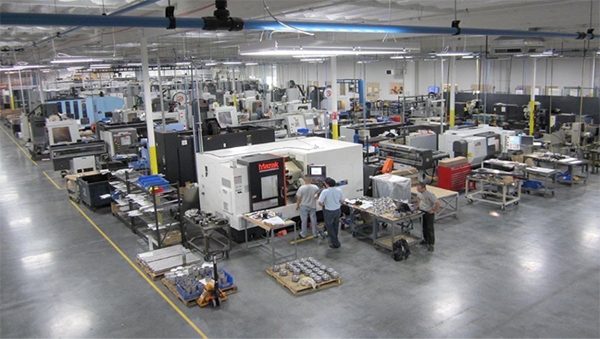How AI, Industry 4.0 solutions, sustainability initiatives, and global partnerships will have an impact on manufacturing in 2024.
The manufacturing industry is undergoing a major transformation, driven by various factors such as inflation, supply chain disruption, sustainability pressure, and global competition. In this article, I will discuss some of the key trends that will shape the future of manufacturing in 2024, and how manufacturers can leverage artificial intelligence (AI) and smart manufacturing technologies to overcome the challenges and seize the opportunities. We will also delve into some of the best practices and examples of how leading manufacturers are using these technologies to improve their operations, products, and customer satisfaction. By reading this article, you will gain a better understanding of the current and emerging trends in the manufacturing industry, and how you can prepare your business for the next wave of innovation and growth in 2024.
Inflation is causing disruption and uncertainty throughout the supply chain, and manufacturers need to find ways to keep their operations stable and efficient. The rising costs of raw materials are pushing manufacturers to seek ways to enhance efficiency and productivity, while lowering costs and maintaining high-quality products. AI offers new opportunities for more streamlined and optimized manufacturing processes. I anticipate that inflation will motivate more manufacturers to adopt AI to overcome the difficulties caused by higher material costs.
The discrete manufacturing sector is facing huge challenges, affecting every aspect of business, including the global supply network. Moreover, there are new demands for sustainability and worker retention. Discrete manufacturers have to rethink every aspect of their business and adopt a more resilient and collaborative approach to solve these problems. The shift toward regional supply chains after the pandemic is also adding pressure to an already strained manufacturing workforce. I foresee that more discrete manufacturers will use data more effectively to enable people and inform decisions, both for real time operations and for long-term planning and forecasting.
Manufacturers around the world are paying more attention to sustainability, as the effects of climate change become more evident. There is a global movement to achieve carbon neutrality across industries and governments. The Securities and Exchange Commission (SEC) has proposed that companies should reveal their greenhouse gas (GHG) emissions to investors, to improve ESG transparency and reduce their carbon footprint. The SEC’s proposal, along with the Paris Agreement’s goal of a net zero economy by 2050, are compelling manufacturers to find ways to lower emissions and increase sustainability initiatives.
I expect smart manufacturing technologies to be essential in the new year to support sustainability efforts in manufacturing. Supply chain traceability solutions can collect, contextualize, and analyze data related to energy use, carbon emissions, and waste. This will give manufacturers the insights they need to find opportunities for reducing their environmental impact.

Smart manufacturing has become more global, thanks to technological innovations, allowing businesses to grow their operations internationally. As a result, more organizations are expanding their reach across borders. In 2024, I expect a significant increase in global partnerships, aiming to speed up the adoption of smart manufacturing practices. Organizations will work more with external partners, such as startups, research institutions, and third-party communities, within open innovation ecosystems. For example, CESMII, Confinity-X, Catena-X, and International-X are some of the initiatives that aim to accelerate the global adoption of smart manufacturing. This collaborative approach enables the exchange of ideas, expertise, and resources, leading to faster innovation and the development of state-of-the-art solutions worldwide. As business leaders continue to leverage advanced technologies and embrace global connectivity, they are poised to achieve unprecedented levels of innovation, efficiency, and competitiveness in the year ahead.
AI and smart manufacturing are becoming more essential for manufacturers in 2024, as they face increasing pressure from inflation, supply chain issues, sustainability demands, and global competition. By adopting these technologies, manufacturers can optimize their processes, reduce costs, enhance quality, lower emissions, and increase innovation. Industry 4.0 solutions can help manufacturers achieve their goals and create value for their customers, stakeholders, and society.
Doug Lawson, CEO of ThinkIQ
Doug has founded, built and sold multiple software startups in the Industrial Sector. His understanding of customer challenges and his leadership creating innovative products to meet those challenges is widely respected in the Industry. The products from his startups are used in nearly a million plants globally. On a personal level ThinkIQ is the logical culmination of his career and, as CEO, he is intentionally creating a company that will have global impact, delivering enormous value to its customers, creating safer, better and trustable products with less environmental impact.
Scott Ellyson, CEO of East West Manufacturing, brings decades of global manufacturing and supply chain leadership to the conversation. In this episode, he shares practical insights on scaling operations, navigating complexity, and building resilient manufacturing networks in an increasingly connected world.